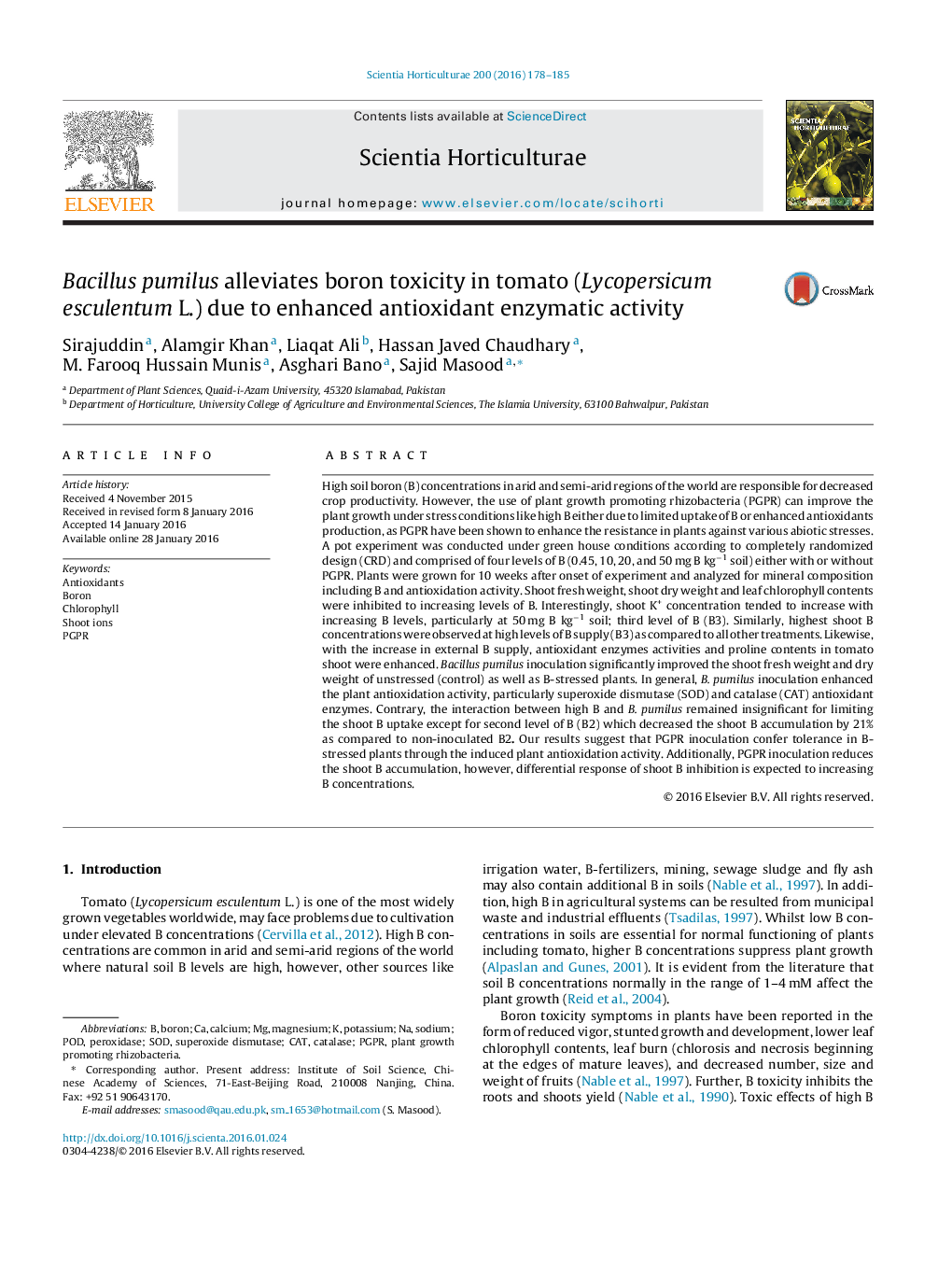| Article ID | Journal | Published Year | Pages | File Type |
|---|---|---|---|---|
| 4566074 | Scientia Horticulturae | 2016 | 8 Pages |
•Without inoculation, higher shoot boron (B) accumulation was responsible for tomato shoot growth reduction.•Bacillus pumilus (PGPR) limited the shoot B accumulation only at moderate level of B supply (B2).•PGPR conferred tolerance in B-stressed plants through the induced plant antioxidation activity.
High soil boron (B) concentrations in arid and semi-arid regions of the world are responsible for decreased crop productivity. However, the use of plant growth promoting rhizobacteria (PGPR) can improve the plant growth under stress conditions like high B either due to limited uptake of B or enhanced antioxidants production, as PGPR have been shown to enhance the resistance in plants against various abiotic stresses. A pot experiment was conducted under green house conditions according to completely randomized design (CRD) and comprised of four levels of B (0.45, 10, 20, and 50 mg B kg−1 soil) either with or without PGPR. Plants were grown for 10 weeks after onset of experiment and analyzed for mineral composition including B and antioxidation activity. Shoot fresh weight, shoot dry weight and leaf chlorophyll contents were inhibited to increasing levels of B. Interestingly, shoot K+ concentration tended to increase with increasing B levels, particularly at 50 mg B kg−1 soil; third level of B (B3). Similarly, highest shoot B concentrations were observed at high levels of B supply (B3) as compared to all other treatments. Likewise, with the increase in external B supply, antioxidant enzymes activities and proline contents in tomato shoot were enhanced. Bacillus pumilus inoculation significantly improved the shoot fresh weight and dry weight of unstressed (control) as well as B-stressed plants. In general, B. pumilus inoculation enhanced the plant antioxidation activity, particularly superoxide dismutase (SOD) and catalase (CAT) antioxidant enzymes. Contrary, the interaction between high B and B. pumilus remained insignificant for limiting the shoot B uptake except for second level of B (B2) which decreased the shoot B accumulation by 21% as compared to non-inoculated B2. Our results suggest that PGPR inoculation confer tolerance in B-stressed plants through the induced plant antioxidation activity. Additionally, PGPR inoculation reduces the shoot B accumulation, however, differential response of shoot B inhibition is expected to increasing B concentrations.
